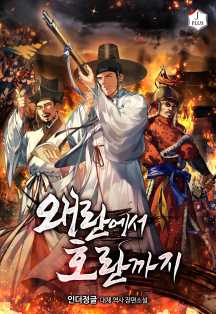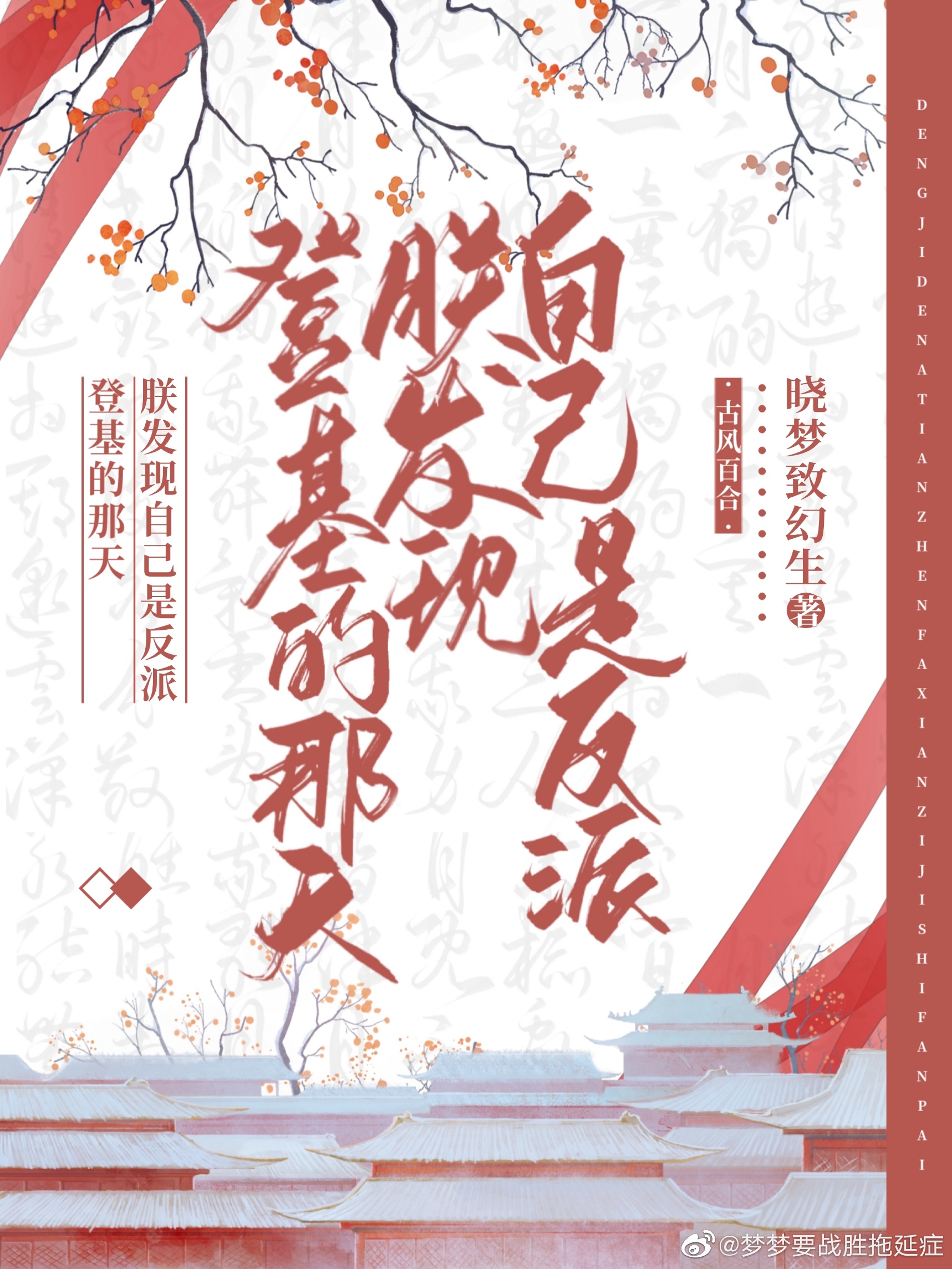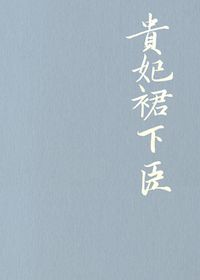The Sheathless Sword
Allah\'s help versus Quraish army
is horse riding towards
Madïnah, he found his fists clenched. A wave of fury engulfed him. Even though the time was
left far behind, it enraged his entire self. The object of his fury was the fact that though it had
been categorically decided in the meeting that no man of Makkah would visit Madïnah for
release of his imprisoned relations, yet one of them stealthily left for Madïnah. He paid the
ransom and returned with his freed father. After this, one or the other Quraish-man would stealthily go to Madïnah and return with his freed kin. Abü Sufyän, eventually, revoked his
decision.
One of Khälids own brother, Al Walïd was a battle-prisoner with the Muslims. If the Quraish
had not got many of their prisoners released by that time, Khälid would have never thought of
going for Al Walïds release. His own brothers had compelled him to go and get his brother
released. Khälid remembered that he was not willing to let go of his ego, but then a thought
occurred to him. The thought was that the noble Prophet was also from his tribe of Quraish and
his city of Makkah and so were his followers who had become Mulims. None of them had come
down from the heavens. They were not so brave and daring as to trounce an army of 1000 with
the meagre strength of 313. From where had they got this new power that they were able to
humiliate us and fix ransoms for our men.
”I will have a look at him, ” thought Khälid. ”I will observe him carefully. ”
And he left for Madïnah in the company of his brother Hishäm. He tied a pouch containing 4000
dirhams. He was sure that the ransom for the son of Banü Makhzüms chief, Al Walïd would not
be less.
It was as he expected. When he named his brother before a Muslim who handled the affairs of
prisoners and ransoms, he demanded the payment of four thousand dirhams.
”We want some discount in the ransom, ” Khälids brother Hishäm entreated the Muslim. ”You
too are from us. Have some consideration for our old ties and relationship. ”
”Now we are not from you, ” the Muslim declared. ”We are committed to obeying Alläh and his
Prophets commands alone. ”
”Can we talk to your Prophet, ” asked Hishäm.
”Hishäm! ” raged Khälid unable to hold himself any further. ”I had decided to sacrifice my
brother for the sake of my honor but you brought me here. Now give them whatever they ask for.
I am not going to Muhammad to beg for mercy. ”
He threw the dirham-filled pouch at the Muslim and said, ”Count it and return our brother to us. ”
When the money had been counted, Walïd was presented to Khälid. The three brothers started
for Makkah there and then. On the way, the brothers asked Walïd what was the cause of their
drubbing. They had hoped that Walïd being a youth of a warrior family would tell them the
effectiveness of the Muslims military moves and their own defects in the light of his
understanding of military tactics and awareness of the art of warfare. But surprisingly, Walïd
seemed to be in an altogether different world with an out-of-place smile on his lips, as if he had
been possessed by some magic.
”Walïd! say something, ” Khälid urged him again. ”We have to take revenge for our defeat. All
the chiefs of Quraish are participating in the upcoming battle. We are also seeking the alliance of
surrounding tribes. They have even started gathering in Makkah. ” ”Bring together the entire Arab world, Khälid! ” Walïd stated, ”and yet you will be unable to
defeat the Muslims. I can say whether Muhammad has some magic in his hands or whether his
message is the truth. But there must be something, that I haven disliked them even while being
their prisoner. ”
”Then you are a traitor to your tribe, ” Hishäm berated him. ”Either you are a traitor or you have
been enchanted by their magic. That Jew priest was correct when he said that Muhammad does
not have a new belief-system or religion. He has only acquired some new magic. ”
”It was magic only, otherwise Quraish wouldn have lost at Badr, ” said Khälid.
It appeared as if Walïd was not listening. There was an inexplicable smile on his lips and he was
time and again turning his neck to look towards Madïnah. There used to be a place called Zul
Hulaifah at some distance from Madïnah. When the three brothers reached there, the night had
grown dark, so they halted there to pass the night.
When they opened their eyes in the morning, Walïd was nowhere nor was his horse. After
considerable thought, they concluded that Walïd had returned to Madïnah. They had observed
that Walïd seemed to be under some enchantment. This enchantment could be the Muslims
only. The two brothers returned Makkah empty-handed. After a few days, they received a verbal
message from Walïd that he has acknowledged Muhammad as Allähs true prophet صلى الله عليه وسلم ,and that
he has been so moved by the Prophets personality and his words that he has embraced Isläm.
Historians say that Walïd remained in high esteem with the noble Prophet صلى الله عليه وسلم and he earned
platitudes for his piety as well as his bravery in battles against Disbelievers.
۞۞۞
Wahshï promises to kill Hamzah ُنهْعَ
َر ِض َي هللاُ
Khälid had felt a pang of extreme fury on the occasion. On one hand his brother had gone and on
the other he had lost 4000 dirhams. As bloody hostility had broken out between Quraish and
Muslims, the latter did not return the money. There was another reason as well for non-return of
the ransom money. Walïd had informed the noble Prophet صلى الله عليه وسلم that Quraish were preparing in full
swing for a decisive battle against Muslims. And for this purpose, they had already collected
innumerable dinärs and dirhams.
Khälid was trotting on towards Madïnah. A raised hump appeared at the horizon. Khälid knew
what it was. It was Mount Uhud lying 4 miles north of Madïnah. At that time, Khälid was
traveling on a very long and a little high sand-hill.
”Uhud … Uhud ” – a whisper originated from Khälids lips and he was now hearing his own
battle-cries. ”I am Abü Sulaimän … I am Abü Sulaimän ” – and with this he found the cries of a
bloody battle, the hoof-sounds of warhorses, and the clanking of clashing swords piercing his
ears. Khälid had been eager to fight this battle and he had fought it at last.
Khälids memory kept backtracking.
It had happened a mere four years back. In March 625 (Shawwäl 3 AH), the army that Quraish
had summoned to attack Madïnah was gathered in Makkah. Its strength was 3000: 700 were
armored, 200 were horse-riders and provisions and battle-supplies were laden on 3000 camels.
The army was ready to march.
Like a day old incident, Khälid remembered how delighted he had been on seeing the mighty
troop. The time for quenching the fire of revenge had come. The commander-in-chief of this
army was Abü Sufyän, and Khälid commanded a wing of this army. His sister was also going
with this troop. In addition, 14 other women were ready to travel with the army, the most
prominent of whom was Abü Sufyäns wife, Hind. Amr bin Al Äss and Ikrimah bin Abü Jahls
wives were also there. The others were singer and musician women. There was poignance in
each ones voice when they sang playing drums and tambourines. The job of these women was
to rouse the morale of the soldiers by singing passionate and emotional songs. They were to keep
reminding the warriors of those killed in the Battle of Badr.
An Ethiopian named Wahshï appeared in Khälids memories. He was the slave of a Quraish
chieftain Jubair bin Mutim. He was tall, dark-skinned and sturdy of build. He was reputed in the
skill of lance-throwing. He had a made-in-Africa spear. His original African name was
something else. Jubair had named him Wahshï (meaning wild) after observing his fighting
prowess.
”Ibn Harb! ” a short while before the march, Jubair bin Mutim talked to him, ”I have to avenge
the blood of my uncle. Maybe, I do not get a chance. My uncle was killed by Muhammads uncle
Hamzah in the Battle of Badr. So, if you succeed in killing Hamzah, I will free you. ”
”Hamzah will die by my lance, master, ” Wahshï bin Harb said with confidence.
This Ethiopian slave strolled towards the place where the women accompanying the army had
just ridden their camels.
”Abü Dusmah! ” a woman called him.
It was Wahshïs another name. He stopped. Abü Sufyäns wife Hind was calling him. He went
close to her.
”Abü Dusmah! ” said Hind, ”Don be surprised. I have called you. My breast is burning with the
flames of revenge. Cool my breast. ”
”At your service, lady, ” the slave replied obediently, ”I will sacrifice my life at the order of our
commanders wife. ”
”In the Battle of Badr, Hamzah killed my father, ” Hind said in a sad voice, ”You can recognize
him well, can you? Look, all the gold jewels I am wearing will be yours if you kill Hamzah. ”
There was smile on his face as he looked at Hinds ornaments. And in an undertone filled with
resolve, he said, ”I alone will kill Hamzah. ” Khälid remembered the setting off of his army. The army had traveled to Madïnah through this
very route. He had climbed a high point to have a look at his army. His chest had swelled with
pride. He felt a tinge of pity for the Muslims of Madïnah. But this pity too had cheered him. It
was an enmity of blood. It was a question of his honour. Crushing the Muslims was now his
determination.
۞۞۞
Betrayal of the Hypocrites
Many days after the Battle of Uhud, Khälid came to know that when Quraish was summoning
the army at Makkah, the information had reached the holy Prophet صلى الله عليه وسلم .And when the army was
on its way to Madïnah, the holy Prophet had the latest news about its march-speed, halts and
distance from Madïnah. The news of the troops departure from Madïnah had been sent to the
Prophet صلى الله عليه وسلم by Hazrat Abbäs (May Alläh be pleased with him).
This army of Quraish had camped at a place near Madïnah which had greenery as well as water.
Khälid was unaware that two Muslim spies had observed the entire strength of the army and had
informed Allähs Prophet of every detail.
On 21 March 625, the noble Prophet صلى الله عليه وسلم ordered his troop to march. The troop camped at the foot
of a hill named Shaikhain. It was a 1000-strong infantry in which only a hundred had helmets on
their heads. There were only two horses with the Mujähids, one of which was with the noble
.صلى الله عليه وسلم Prophet
It was the first occasion when the hypocrisy of some pseudo-Muslims came to the fore, leaving
the Muslims in great danger. This was equivalent to treachery. They were some people of
Madïnah who had embraced Isläm as public posture, but their hearts were not Muslims. The
celebrated Prophet صلى الله عليه وسلم had named them Hypocrites. It was very difficult to tell a true Muslim from
a Hypocrite in those days. When the Muslim Mujähids started marching from Madïnah towards
the Shaikhain hill, Abdulläh bin Ubai, an influential leader of Madïnah, entered into a discussion
with Allähs prophet. He averred that the Quraish army was threefold in strength, and therefore,
going out of Madïnah to fight them in the open would be disastrous.
When the Prophet صلى الله عليه وسلم sought opinions from other chiefs of Mujähids, the majority preferred going
out of Madïnah and challenging the enemy in the open. The Prophets opinion was same as that
of Abdulläh bin Ubai, but he decided on the basis of the majority view and ordered the army to
march. Abdulläh bin Ubai refused to go out for battle. No sooner had he turned his back than
300 men from the Mujähid troop separated from the army. It then came to light that all of them
were Hypocrites and Abdulläh bin Ubai was their chief.
Now there were only 700 Mujähids against 3000 men of Quraish. But Allähs Prophet صلى الله عليه وسلم did not
lose heart and marched off with the remaining 700. He arranged the Mujähids in battle-array at
the foot of Shaikhain hill in the Uhud mountain range. Khälid climbed a high hill to view the
Muslim line-up, then he informed his commander Abü Sufyän and fixed the position of his
division in consultation with him
The holy Prophet صلى الله عليه وسلم spread the Mujähids in a length of about 1000 yards. Behind them lay a
valley, on one side was a range of hills, but on the other side, there was no defense. The holy
Prophet stationed 50 archers at a nearby hillock on this side under the command of Abdulläh bin
َر ِض َي للاه َعْنهه Jubair
.
”Understand your responsibility, Abdulläh! ” Allähs Prophet had instructed him, keep watch on
the back. The enemy may make a move in our back which will be highly dangerous for us. The
enemys cavalry is quite strong. They may use them to attack from our back. So, keep your
archers focused on the enemy horsemen. I have no fear from the footsoldiers. ”
Nearly all authoritative historians, in particular, Ibn Hishäm and Wäqdï, write that the noble
Prophet صلى الله عليه وسلم had clearly stated to Abdulläh bin Jubair, ”Our back will be safe only by your
watchfulness and readiness. A little slip on your part may cause us humiliating defeat.
Remember Abdulläh, even if you see the enemy fleeing and us being victorious, don leave
your position. If you see that the enemy is pressing us from all sides and that you must come to
help us, even then don leave your position. This hillock should never go under the enemy
control. This hillock is yours. You are the ruler of all the underlying surroundings in the reach of
your archers arrows. ”
Khälid observed the Muslim line-up and told Abü Sufyän that Muslims would not fight the battle
of open-field. Proud of his strong army, Abü Sufyän wanted the battle to take place in the open,
with unbounded fronts. This would enable him to crush the Mujähids with the large number of
his cavaliers and footmen.
Khälids father had started training him in battle-maneuvers from childhood itself. This included
taking the enemy unawares by suddenly attacking them from a side or back, moving round the
enemy and then carrying out a surprise raid, dividing the army and keeping complete control
over the divisions, and so on. So, when Khälid saw the line-up of Mujähids with the eye of an
experienced tactician, he felt that Muslims may display their skill in the art of warfare.
Abü Sufyän ordered his army to march to the Muslims. He sent the cavaliers to attack the sides
of the Muslim army. One side was assigned to Khälids division, and the other to Ikrimahs.
Each of them had a hundred horsemen under his command. The commander of the entire cavalry
was Amr bin Al Äs. Abü Sufyän placed a hundred archers in front of the infantry. The flag of
Quraish was in Talhah bin Abü Talhahs hands. In the battles of those days, the flag had the
status of the heart. If the flag fell, the soldiers would lose heart and chaos would follow in the
army.
۞۞۞
Abü Ämir Fäsiq
Starting the battle from the Quraishs side, a soldier Abü Ämir Fäsiq came out of their row and
reached close to the Mujähids. Behind him there were some slaves. He was an inhabitant of
Madïnah, and one of the chieftains of the Aus tribe. When the noble Prophet migrated from
Makkah to Madïnah, Abü Ämir Fäsiq took a vow that he would not rest till he expelled Allähs Prophet and all the Muslims from Madïnah. He was enchanted by a very pretty Jew girl as also
by their wealth. The anti-Isläm activities of the Jews used to be underground in those days.
Publicly, they had entered into an agreement of friendship and loyalty with the Muslims. Abü
Ämir was like a puppet in their hands, whom they had decided to ally with the Quraish.
So, when the Mujähids marched out of Madïnah to fight the Quraish, Abü Ämir switched over
to the Quraish side. Many men of his Aus tribe had embraced Isläm sincerely at the hands of the
holy Prophet, and they were lined up against the Quraish. Abü Ämir came forward and
addressed the Mujähids in a loud voice. The noble Prophet صلى الله عليه وسلم had nicknamed him Fäsiq (habitual
sinner).
”Chivalrous bravehearts of the Aus tribe! ” Abü Ämir called out, ”You certainly know me, who I
am. Listen carefully to what I say and … ”
Abü Ämir hadn completed his address when a Mujähid of the Aus tribe roared from the
Muslim rows, ”O Fäsiq, O sinner, O pervert, we cast our spit on your name. ”
The scene was playing in Khälids mind. A torrent of stones started falling on Abü Ämir and the
slaves behind him. Historians say that the stone-throwers were Mujähids of Aus. Abü Amir and
the slaves who were in the range of the stones fled back after getting hurt by a few stones.
The Jews were sitting at Madïnah eagerly waiting for the news of the battle. The Jew girl who
had captivated Abü Ämir was keenly waiting for the news of her success. She did not know at
the time that Muslims had stoned away the enchantment of her gorgeous youth. (In the coming
chapters, you will be told in detail of the underground activities of Jew and Quraish women.)
Before this incident involving Abü Ämir Fäsiq, the women with the Quraish army were standing
in the midst of the troop and singing melodious songs. They reminded the listeners of the
Quraish men killed in the Battle of Badr in such words and tone that made the listeners bloods
boil and caused their hairs to stand up. A few of these women had also heated the bloods of the
soldiers with fiery speeches.
When the women were ordered to go back, Abü Sufyäns wife Hind rode a horse and started
singing a song. Her voice was loud and emotional. Historians have been unable to preserve all
the verses of her song. They have written that the song was obscene depicting the behind-the-
veils relationship of husband and wife. The verses which are there in the history books are as
follows. The Abdud Där mentioned in these verses refers to the clan of Banü Abdud Där which
was a branch of Banü Umayyah, a sub-tribe of Quraish. Banü Abdud Där was a highly esteemed
clan of Quraish.
Worthy sons of Abdud Där!
Watchmen of our houses and hearths!
We are the daughters of night and dark.
We play between pillows and cushions
Which arouses joys and jubilations.
If you march upon the enemy, well pull you to our hearts,
But if you flee, we will from you keep apart.
۞۞۞
The Commander-in-Chief comes to duel
After this, there was stone-throwing by the Mujähids upon Abü Ämir Fäsiq. Immediately
following this, Quraish started shooting arrows at the Mujähids. Mujähids too rained arrows in
reply. Khälid made a swift move with his 100 horsemen to attack the Muslim side close to him.
He did not know that archers were lying in hiding on a hillock waiting for them. Kahlids
horsemen were galloping forward unhesitatingly on a slightly narrow path which made them
break their formation.
After much thought, Khälid had brought his division to this area. Based on his fathers training,
he was confidently hopeful that his sudden attack would force the Muslims to either flee or fight
with broken lineup, in which case, they would be crushed under the feet of Quraishs horses. But
when his horsemen were still at some distance from the Muslim army side, a torrent of arrows
fell upon his cavaliers from above. His frontline horsemen were now neither in a position to
march ahead nor to turn back. One by one, the horsemen fell after sustaining several arrows. The
horses injured by the arrows wreaked havoc upon Khälids horsemen. The cavaliers at the back
turned around their horses and fled.
On the other side, the women of Quraish started singing the same song in tune with the beats of
drums and tambourines which Hind had earlier sung alone. ”Worthy sons of Abdud Där! We are
the daughters of night and dark. We play between pillows … ”
Historian Wäqdï reports that in accordance with the battle-traditions of those days, the time came
for one-to-one duel. First of all, the flag-bearer of Quraish, Talhah bin Abü Talhah marched
ahead and challenged the Mujähids of Isläm to send someone to duel with him.
”Come forward, O enemy of my religion! ” Like a wave of swift breeze, Hazrat Alï rushed
forward and replied to the challenger, ”Im here to duel with you. ”
Bearing his tribes flag and waving his sword, Talhah came forward fiercely, but his sword-
attack did nothing but tear away at the air. He was regaining his balance, when Hazrat Alïs
sword inflicted upon him a wound so severe that first, his flag fell and then he himself followed.
A man of Quraish ran forward, lifted up the flag and went back with it. Hazrat Alï could have
felled him too, but this was against the duel-tradition.
When they had taken Talhah out of the battle-front, another man from his clan came forward.
”Im duty-bound to avenge, ” he came to the front challenging, ”Come, Alï! See the slash of my
sword. ”
Hazrat Alï confronted him silently. Both moved in one round circle maintaining their eye-
contact, then their swords and shields clashed. After that, everybody saw that blood was dripping
off Hazrat Alïs sword and his challenger was shuddering on the ground.
Many soldiers of Quraish came forward with the challenge one after another, and continued
getting killed.
The commander-in-chief of Quraish, Abü Sufyän was beside himself in anger when he saw his
men dying in continuum. According to the battle traditions, he being the commander should not
have come forward for duel. His death would have led to chaos in his army. But he could not
hold himself back. He was riding a horse. He spurred his horse and came to the front challenging
the Muslims.
When his wife Hind saw him going forward, she rode her camel, came to the front and started
singing in a loud voice the song which also included the verse: ”… if you flee, we will from you
keep apart. ”
Abü Sufyän was riding a horse but the Muslim who came forward in response to his challenge
was on foot. History remembers him as Hanzalah bin Abü Ämir للاه ي َض ِرَ
نههْع . َAbü Sufyän had a
spear in his hand. Nobody expected the sword-wielding foot-soldier to escape alive from the
spear-brandishing horseman. Abü Sufyäns horse rushed towards Hanzalah. Abü Sufyän
positioned his spear, aimed at Hanzalah and then struck him. But Hanzalah showed agility and
moved to a side.
This was repeated thrice. On the last occasion, when Abü Sufyäns horse rushed ahead, Hanzalah
chased after it. The horse halted and turned back but Hanzalah had reached it by that time. Abü
Sufyän did not see him. Hanzalah struck the horses forelegs so hard that it fell down. Abü
Sufyän fell on the other side. Hanzalah came forward to attack him, but Abü Sufyän kept running
round the horse to save himself. And he called out to Quraish for help.
A foot-soldier of Quraish came running. Muslims were in the false belief that this man had come
to take away Abü Sufyän, but he violated the battle-law. He attacked Hanzalah from behind and
martyred him. Abü Sufyän fled towards his army line-up.
For the last round of duel, Abdur Rahmän bin Abü Bakr came from the Quraish side. Historian
Wäqdï reports that on hearing Abdur Rahmäns challenge, his father Abü Bakr who was one of
the first to embrace Isläm and was in the company of Allähs Prophet صلى الله عليه وسلم ,pulled out his sword
and came forward to duel with his young son.
”Come forward, O Disbeliever son of Muslim father! ” Abü Bakr نههْع َللاه ي َض ِر َresponded to his
challenge.
When the noble Prophet صلى الله عليه وسلم saw the father and son face-to-face, he ran forward and stopped Abü
Bakr. ”Put back your sword in the sheath, Abü Bakr, ” the noble Prophet said and took him back.
Hamzah
martyred رَضِيَ هللاُ
Even now Khälid could hear the shouts and cries of the battle. His eyes had preserved the scenes
beneath their lids. As soon as the duels ended, Quraish charged against the Muslims. The noble
Prophet had the Uhud mountains behind him, so Muslims had no fear of attack from behind. The
head-to-head confrontation was ferocious. Though the strength of the Muslims was quite less,
they compensated it with their zeal and skilful swordsmanship. If the Quraish army did not have
overwhelming numbers, they would not have stood their ground fighting the Muslims. They
were fighting merely on strength of their numbers.
Khälids watchful eyes lay in wait for the noble Prophet صلى الله عليه وسلم ,who was on a side. This was the side
upon which Khälid had to attack. This time, Khälid ordered his horsemen to charge their horses
and pass ahead of the narrow path, then attack the side of the Muslim army. But Abdulläh bin
Jubairs 50 archers forced them to flee which they did leaving behind some horses and horsemen
groaning in wounds.
The battle was at its peak. There was only one man who was not fighting. Wielding his lance, he
was moving about in the battle-field as if searching for someone. He was Wahshï bin Harb. He
َر ِض َي للاه َعْنهه Hamzah for looking was
. He had been promised two prizes for killing Hamzah: one,
his master would free him, and two, he would get all the ornaments of Abü Sufyäns wife Hind
which she was wearing at the time.
َر ِض َي للاه َعْنهه Hamzah of sight caught He
. He was charging towards a Quraish man, Sibä bin Abdul
Uzzä. It was a tradition in Arab that women circumcised the children. According to historian
Ibn Hishäm, the tradition of circumcision was prevalent among the Arabs even before the advent
of Isläm. The mother of Sibä whom Hamzah had challenged used to circumcise children.
”O son of circumcising woman! ” challenged Hamzah, ”Come here and look at me for the last
time. ”
Sibä bin Abdul Uzzä rushed towards Hamzah. His face was red in anger. He was an expert in
the battle of sword and shield. Hamzah too was in no way inferior. Both came close to each other
and started attacking. The shields of both were obstructing the attack. They were changing their
positions and attacking but shields would come in the way of the swords.
At that time, Wahshï bin Harb with his head leaning down, was approaching Hamzah slowly. He
was out of sight because of the landscape and the bushes. Hamzah was gazing in the eyes of his
enemy, unable to see anyone other than Sibä.
Wahshï came close to him. He was skilled in throwing lance at an aim. He came so close that his
lance could not miss the goal. He straightened himself, balanced the lance in his hand and
brought it in a position to strike. Hamzah struck Sibä twice or thrice in succession. The last
strike was such that Hamzahs sword pierced into Sibäs stomach. When Hamzah pulled out his
sword, his stomach opened up further. He fell down at Hamzahs feet. Hamzah had merely regained his balance when Wahshï threw his lance at him with full force.
The distance was very small. The lance pierced into Hamzahs stomach so deep that its blade
came out of his back. Hamzah did not fall.
He looked around and found out Wahshï. With the lance in his body, Hamzah moved towards
Wahshï. Wahshï remained where he was. But Hamzah fell after staggering for four to five steps.
Wahshï watched his body shaking. When the bodys motion had stopped, he came near. Hamzah
was martyred. Wahshï pulled out the lance from his body and went away. Now he was searching
for Hind and his master Jubair bin Mutim.
Quraish flees from the Uhud battle-
field
The battle kept flashing in Khälids mind and a kind of weight seemed to bear down his heart.
His horse was trotting ahead. He was passing on a low-lying path, so the peak of Uhud
disappeared from his view. He remembered the women of his tribe who were rousing Quraish
and the allied tribes. Khälid remembered that he had climbed a hillock to view the battle. He saw
Muslim women too. They took charge of the wounded fighters whom Muslim men brought
behind from the front. They would apply bandage and balm and give them water to drink. There
were 14 women with Muslims. Hazrat Fätimah هَ
َر ِض َي للاه َعْن
ا was one of them.
Then astonishingly, the few-in-number Muslims had defeated the outnumbering Quraish. The
flag-bearer of Quraish fell down. Someone else lifted it up. He too fell. The flag fell several
times. In the end, a slave hoisted it up. But when he too got killed, the Muslims did not let
Quraish hoist the flag again. Quraish had lost spirit.
Khälid saw their flight. He also saw that Muslims were chasing after them. Quraish did not even
halt at their camps. They left their goods and belongings and fled in chaos. From here the post-
battle phase started. In the delight of victory and with the purpose of revenge, Muslims started
taking into their possession the Quraishs camps and their contents. They were crying out
slogans of victory and triumph. Quraish had fled in such fear that they had forgotten their women
too. They were fleeing on foot, but the Muslims did not even let their gazes fall upon them.
One of the divisions of the Quraish cavalry was commanded by Ikrimah, and the other by
Khälid. They had to attack the sides of the Muslim army. But the dice of battle had turned
irreparably for the worst. Ikrimah and Khälid, however, kept their horsemen where they had
been stationed during the battle. Even in this condition, Khälid hoped that he would be able to
turn the defeat into victory. But the path which he had to pass through was protected by Muslim
archers in battle-readiness.
These Muslim archers saw from their vantage position that Quraish had fled and their Muslim
friends were capturing the belongings left behind by Quraish. They too started leaving their
positions to gather the battle-spoils. Their commander Abdulläh bin Jubair warned them not to disobey the Prophet صلى الله عليه وسلم .He reminded them that the Prophet صلى الله عليه وسلم had told them that nobody should
leave his position here without his permission.
”The battle is over, ” shouting this, the archers started descending from their hillock. ”Battle-
spoils, battle-spoils … We are victorious. ”
Only nine archers were left with the commander Abdulläh bin Jubair.
To Khälid this scene seemed like a dream. This was what he wished for. He kept looking at the
archers. When they had reached the Quraish camps, Khälid attacked the hillock (Ainain) where
Abdulläh bin Jubair was left with his nine steadfast archers. Khälid could have overlooked them,
but he wanted to take revenge from them. His horsemen were steadily climbing up the hillock.
From top, the archers were swiftly shooting arrows.
When Ikrimah saw Khälid charging towards Ainain, he too brought his division here. His
horsemen began to climb from every side. The horsemen also had bows and arrows and they
were shooting up. It was not possible for Abdulläh bin Jubair and his men to stop the cavaliers in
such large numbers. The horsemen reached the top. The archers then engaged in hand-to-hand
fight, but all of them got wounded and fell. Khälid threw the wounded down the hillock.
Abdulläh bin Jubair too was among the martyrs.
From there Khälid and Ikrimah brought down their cavaliers and reached the place from where
the Muslims had started the battle. On Khälids command, both of them at once attacked the
Muslims. The Muslims were not in a position to fight. However, the noble Prophet had a small
division of Mujähids with him. These Mujähids stood their grounds against the cavaliers.
The women who had come with Quraish had fled. But one of them, Amrah, had hidden
somewhere in the vicinity. When she saw Quraish horsemen attacking the Muslims, she
discovered the Quraish flag lying on the ground. She raised the flag and hoisted it.
Abü Sufyän had regained control of his fleeing foot-soldiers. When he looked around, he found
the Quraish flag waving up in the air. He shouted out the slogans of ”Long live Hubal! ” and
”Long live Uzzä! ” He then brought the foot-soldiers back and encircled the Muslims.
The battle-scenes flashed in Khälids mind. He was searching for the noble Prophet صلى الله عليه وسلم – ,and
today, four years later he was going to Madïnah, his heart and mind overcome by the holy prophet
.صلى الله عليه وسلم
You'll Also Like
-

After Being Abducted by the General
Chapter 35 July 31, 2023 -

Chronicles of The Hardships of Komachi in The Sengoku Era
Chapter 92 August 1, 2023 -

Extra Works Hard
Chapter 45 July 21, 2023 -

Transmigrated into a Blacksmith’s Husband
Chapter 26 August 21, 2023 -

The Small Canteen Of Dali Temple
Chapter 19 July 15, 2023 -

From the Imjin War to the Qing Invasion
Chapter 22 June 27, 2023 -

Her Highness Doesn’t Want to Work Hard Anymore
Chapter 34 June 17, 2023 -

I’m Also Waiting for the Male Protagonist to Usurp the Throne Today
Chapter 66 July 17, 2023 -

On the Day I Ascended the Throne, I Found Out That I Was the Villain
Chapter 66 May 25, 2023 -

At the Noble Consort’s Feet
Chapter 105 June 4, 2023 -

Farm Girl’s Space: Picking Up a Major Villain during the Runaway Journey
Chapter 82 May 28, 2023 -

The Miracle Doctor’s Two-Faced Toddler
Chapter 936 August 27, 2023
